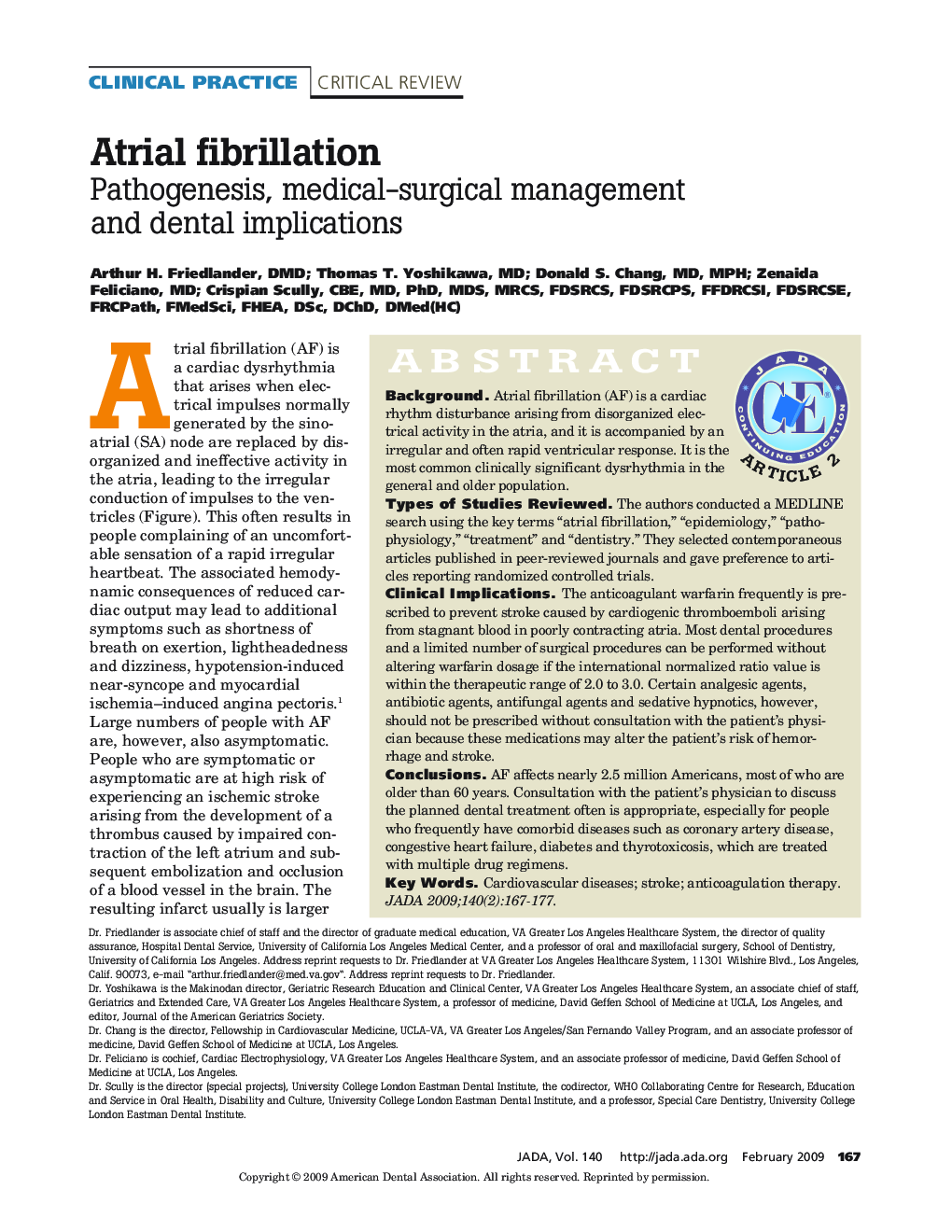| Article ID | Journal | Published Year | Pages | File Type |
|---|---|---|---|---|
| 3139976 | The Journal of the American Dental Association | 2009 | 11 Pages |
ABSTRACT BackgroundAtrial fibrillation (AF) is a cardiac rhythm disturbance arising from disorganized electrical activity in the atria, and it is accompanied by an irregular and often rapid ventricular response. It is the most common clinically significant dysrhythmia in the general and older population.Types of Studies ReviewedThe authors conducted a MEDLINE search using the key terms ‘atrial fibrillation,’ ‘epidemiology,’ ‘pathophysiology,’ ‘treatment’ and ‘dentistry.’ They selected contemporaneous articles published in peer-reviewed journals and gave preference to articles reporting randomized controlled trials.Clinical ImplicationsThe anticoagulant warfarin frequently is prescribed to prevent stroke caused by cardiogenic thromboemboli arising from stagnant blood in poorly contracting atria. Most dental procedures and a limited number of surgical procedures can be performed without altering warfarin dosage if the international normalized ratio value is within the therapeutic range of 2.0 to 3.0. Certain analgesic agents, antibiotic agents, antifungal agents and sedative hypnotics, however, should not be prescribed without consultation with the patient's physician because these medications may alter the patient's risk of hemorrhage and stroke.ConclusionsAF affects nearly 2.5 million Americans, most of who are older than 60 years. Consultation with the patient's physician to discuss the planned dental treatment often is appropriate, especially for people who frequently have comorbid diseases such as coronary artery disease, congestive heart failure, diabetes and thyrotoxicosis, which are treated with multiple drug regimens.
